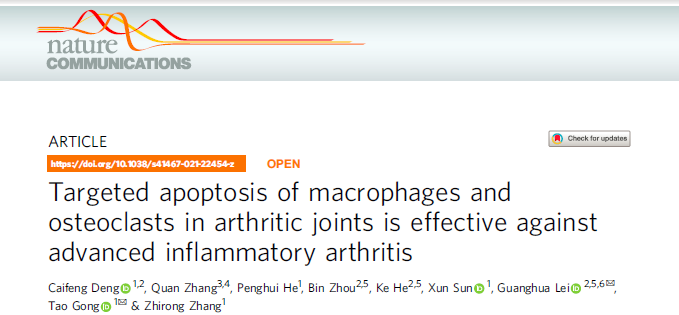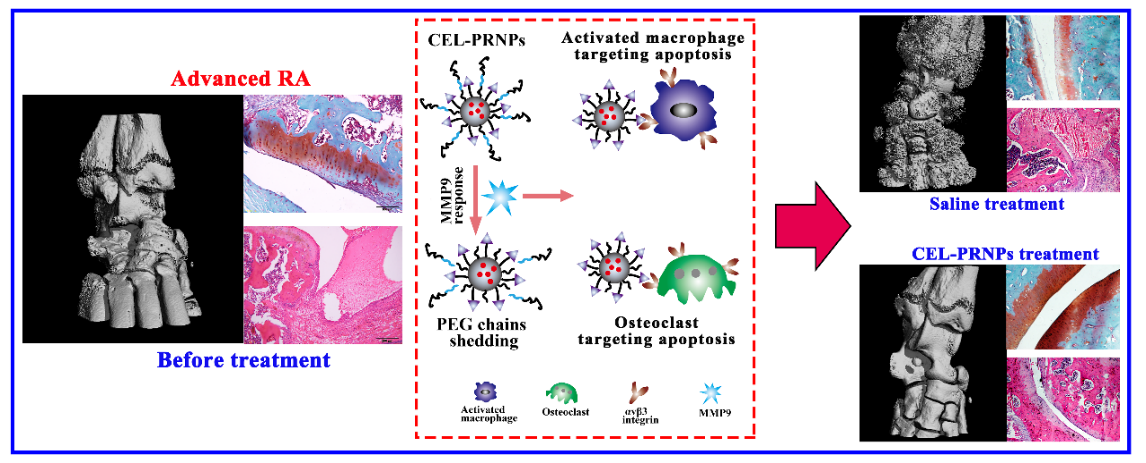In collaboration with Professor Lei Guanghua of Xiangya Hospital of Central South University, Professor Gong Tao's research team of West China School of Pharmacy has developed a new targeted nanotransmitter system that can accurately deliver drugs and direct them to induce inflammatory macrophages and bone-breaking apoptosis in lesions. The results published online in the journal Nature Communications on April 12. This study is the first to confirm that selectively induced inflammatory macrophages and bone-breaking apoptosis play a key role in the treatment of rheumatoid arthritis, providing new ideas for precision therapy.

Professor Gong Tao of West China School of Pharmacy of Sichuan University and Professor Lei Guanghua of Xiangya Hospital of Central South University are the co-corresponding authors of this paper, Deng Caifeng (now a postdoctor at Xiangya Hospital ) of West China School of Pharmacy is the first author of this article, and West China School of Pharmacy is the first author unit.

Insufficient apoptosis of inflammatory macrophages and osteoclasts (OCs) in rheumatoid arthritis (RA) joints contributes toward the persistent progression of joint inflammation and destruction. Here, we deliver celastrol (CEL) to selectively induce apoptosis of OCs and macrophages in arthritic joints, with enzyme-responsive nanoparticles (termed PRNPs) composed of RGD modified nanoparticles (termed RNPs) covered with cleavable PEG chains. CEL-loaded PRNPs (CEL-PRNPs) dually target OCs and inflammatory macrophages derived from patients with RA via an RGD-αvβ3 integrin interaction after PEG cleavage by matrix metalloprotease 9, leading to increased apoptosis of these cells. In an adjuvant-induced arthritis rat model, PRNPs have an arthritic joint-specific distribution and CEL-PRNPs efficiently reduce the number of OCs and inflammatory macrophages within these joints. Additionally, rats with advanced arthritis go into inflammatory remission with bone erosion repair and negligible side effects after CEL-PRNPs treatment. These findings indicate potential for targeting chemotherapy-induced apoptosis in the treatment of advanced inflammatory arthritis.(abstract)
Link to original article:https://www.nature.com/articles/s41467-021-22454-z
